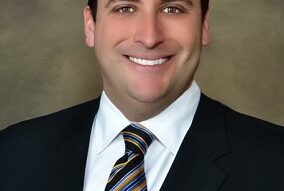Jon Maddux helps homeowners walk away from their mortgage loans, even if they can afford to make their payments.
And he doesn’t feel guilty about it.
“Who created the housing bubble? Wall Street and the banks,” Maddux said. “They should do principal reductions. They are the ones who should take a loss. The peopel who made the most money from the housing bubble should lose the most money now that it’s popped. This shouldn’t fall on the average American who was simply following the American dream.”
Maddux has received a lot of press since 2008. He’s the chief executive officer of Carlsbad, Calif.-based YouWalkAway.com, a company that helps guide homeowners through the strategic default process. YouWalkAway.com provides legal advice, tax advice and document-checking services to homeowners who decide to stop making their mortgage payments because they are underwater on their home loans.
The fees that YouWalkAway.com charges vary based on the services that homeowners request, but clients typically pay about $1,000 for the adivce that the company provides.
Business, not surprisingly, has been strong: Maddux says that YouWalkAway.com averages more than 100 new clients every month. And that number should remain high; housing experts are waiting on a new round of housing foreclosures as banks and lenders more aggressively pursue delinquent homeowners.
This does impact commercial real estate professionals. After all, if people are walking away from their homes, the odds are good that they won’t be making many big purchases in the near future. When consumers aren’t active, that doesn’t bode well for the commercial real estate industry.
Making the decision to walk away from a mortgage loan and voluntarily fall into foreclosure isn’t an easy one. But Maddux says that his clients should not be considered unethical for no longer making their payments.
Strategic default, he says, is almost always a wise business decision.
“Whether it’s moral or not is not the issue. It’s whether it’s the smart thing to do,” Maddux said. “We’ve found that 99 percent of the time, walking away is the smart thing to do. There are a lot of people out there who are underwater by 20 percent or more. It’s a bad investment to keep making payments when you’re that far underwater. Even if you’re only 5 percent underwater and you can’t sell your house because of it, you can feel trapped.”
Foreclosure, of course, comes with consequences. They will stay on the credit reports of former homeowners for seven years, though the negative impact of this lowers with each passing year.
Then there’s the community-wide impact. If people begin walking away from their mortgags in droves, that could send the country into more economic problems. About 11 million homeowners owe more on their mortgage loans than what their homes are worth, accordingto CoreLogic. Just think what would happen to the economy if a good percent of these people decided to strategically default on these home loans.
Maddux, though, says that homeowners need to look at their own financial situations. A house is an investment, he says. And if a particular house is a bad investment, it makes sense for its owners to walk away.
“When we first started, people thought I was crazy. ‘Why would peopel pay money to have someome tell them not to make their house payment?'” Maddux said. “This is a unique and scary position to be in. I would equate it to representing yourself in court. It is something you can do on your own. But it’s not advisable that you do. People end up sick over the kind of stress that can come with this. They end up divorced. For a small fee it’s not a bad investment to make sure that you make it through the process OK.”



